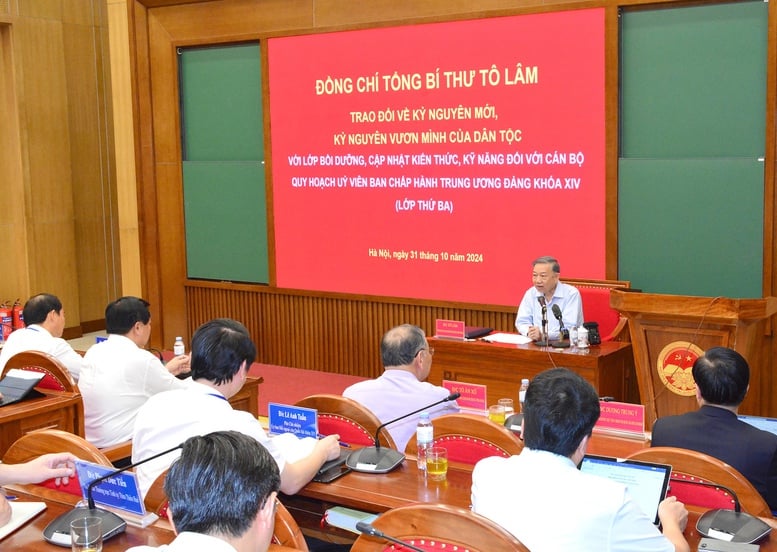
General Secretary To Lam exchanges views with trainees who are cadres being considered for membership in the 14th Central Committee of the Party on the new era, the era of the nation's progress - Photo: VNA
Recent practice shows that personnel management has undergone many positive changes: mechanisms for controlling power have been strengthened, planning, rotation, and evaluation are increasingly transparent and democratic, and many innovative models such as "young cadres," "digital transformation cadres," and "female leaders" have proven effective. However, limitations remain, such as selection not based on empirical evidence, training heavily reliant on theory, overlapping management structures, and limited application of digital technology in power control. Therefore, to build a team of cadres with the qualities, capabilities, prestige, integrity, and efficiency commensurate with the tasks in accordance with the spirit of the 13th National Congress Resolution, a comprehensive, strategic, and groundbreaking system of solutions is needed to meet immediate urgent requirements and aim for sustainable development in the era of digital transformation and international integration.
Personnel selection: "Choose the right person, place them in the right position, and assign them the right job."
In personnel management, selection is the initial but crucial step. A correct policy or a good initiative can only be implemented if there is a team of qualified personnel to carry it out. Conversely, if the wrong people are selected, the system will have to spend years "correcting the mistakes," the people's trust will be damaged, and the Party's prestige will decline. Therefore, reforming personnel selection is not just about improving personnel management techniques, but about reforming the thinking about the power and political responsibility of officials – "selecting people to build the Party, not to hold positions."
Resolution No. 26-NQ/TW dated May 19, 2018 of the XII Party Central Committee affirms: "Personnel work must be carried out regularly, cautiously, scientifically, strictly and effectively; taking the effectiveness of the work and the trust of the people as the main measure"[1]. This is a revolutionary shift in thinking about personnel work – from "selecting people according to dossiers" to "selecting people according to practical actions", from "correct procedure" to "correct substance", from "administrative standards" to "value standards".
First, redefine the criteria for selecting officials.
To meet the demands of the new era, a set of criteria for selecting officials needs to be developed based on five pillars: character, competence, prestige, integrity, and effectiveness . Character is demonstrated by absolute loyalty to the Party, the people, the Fatherland, and the socialist system. Competence is the ability to formulate policies, manage change, and apply technology. Prestige is verified through trust and practical results. Integrity is the ethical barrier protecting power. Effectiveness is the ultimate value of public service. From this value system, a modern, unified, measurable set of criteria for selecting officials needs to be developed, linked to each position. Each official needs a "digital profile" that truthfully reflects their work process, achievements, initiatives, disciplinary actions, awards, and social feedback. When criteria are translated into data, selection will become objective, transparent, and impartial, ending the situation of "following the correct procedure but choosing the wrong person."
Secondly, transparency, competition, and checks and balances in the selection process.
Cadre work is a measure of the integrity and competence of the ruling Party. If power is not controlled, it will be corrupted; if the process is not transparent, trust will be eroded. Therefore, cadre selection must be carried out in the spirit of "openness, transparency, genuine competition, and comprehensive supervision". Regulation No. 205-QĐ/TW dated September 23, 2019, of the Politburo on controlling power in cadre work and combating bribery for positions and power clearly states: "All acts of abusing power for personal gain in cadre work are strictly prohibited and must be dealt with severely" [2]. This is not only an administrative regulation but a political commitment of the Party in "tightly locking power with responsibility". It is necessary to expand open competitive examinations for leadership positions, independent councils for evaluation, social criticism, and announcement of results – considering this as a "mandatory political filter". When power is placed within an institutional framework and under the watchful eye of the people, confidence in personnel management needs no propaganda; it affirms itself through the integrity of the system.
Third, shift from static to dynamic planning – creating a genuine "flow of personnel".
In practice, one of the biggest bottlenecks in current personnel management is the static, closed-minded planning mindset, leading to a situation of "formal standardization but a lack of opportunities for talented individuals." To overcome this, we need to shift to a "dynamic and open planning" model, where practical competence, work results, and the ability to handle difficult tasks are criteria for identifying, nurturing, and utilizing personnel. We must create a flexible "personnel flow," allowing talented individuals to be challenged and those who are stagnant to be naturally eliminated; thereby fostering a culture of competence instead of seniority, so that personnel are valued based on their contributions, not on connections or age.
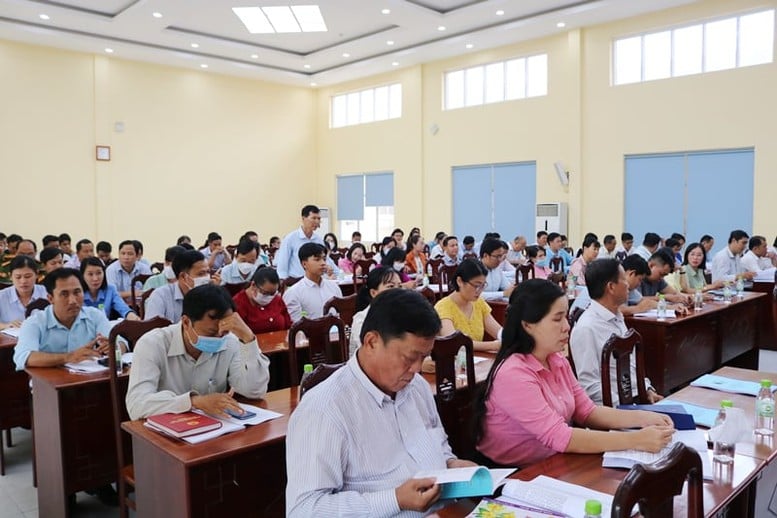
A training course for officials, civil servants, and public employees of Ho Chi Minh City in 2025.
Training and developing cadres in the new era – developing action capabilities, linking knowledge with revolutionary ethics.
If cadre selection is the initial step, then training and development are the long-term driving forces of the entire political system. A team of cadres who are properly selected but not regularly trained and developed will be like a "lamp without oil"—bright quickly but extinguished just as fast. Therefore, fundamentally reforming cadre training and development is not only a professional requirement, but a strategic task in building political individuals—loyal, honest, creative, and dedicated to serving the people.
Firstly, we must integrate Ho Chi Minh's ideology, ethics, and style into all training programs.
Studying and following Ho Chi Minh's ideology, ethics, and style is not merely a socio-political movement, but a method for shaping the character, fortitude, and power culture of revolutionary cadres. Every cadre training program, regardless of level, must begin at the root – that is, educating on ideals, cultivating ethics, and developing a leadership style that serves the people. This is the spiritual foundation that helps cadres to self-reflect, self-correct, and resist the temptations of power, material wealth, and fame; helping them maintain a "pure heart amidst a complex system." Revolutionary ethics in training today is not just a reminder of virtue, but must become a "hard component" in the system of criteria for cadre competence, linking ethics with action, effectiveness, and political responsibility.
Secondly, developing comprehensive capabilities – from political thinking to practical skills in the digital age.
A modern-day official must "know how to lead with vision, act with data, decide with intelligence, and inspire with ethics." That is the model of official that the digital transformation era demands. Therefore, Officials at all levels, especially leaders and managers, need to be trained in modern state governance, digital economy, innovation, and international integration. Training officials in the context of globalization and Industry 4.0 is not just about imparting knowledge, but about cultivating a new management mindset – a mindset of those who dare to innovate, adapt, and lead change. Today's leaders must understand economics to formulate sound policies, understand technology to organize rapid implementation, and understand people to govern with trust. This is "institutional integration with identity" – integration with global knowledge, while maintaining the political integrity of a Vietnamese communist.
Third, closely integrate theory and practice – "forge skills through difficult tasks, mature through challenges."
There is no better school than the "school of revolutionary life," where cadres are tempered in practice and mature through hardship. Therefore, training must be closely linked to practice, to rotation, and to the assignment of difficult tasks – to train through action, hone through dedication, and mature through challenges. Practical experience should be included as a criterion for evaluating the quality of training and cadre planning . This embodies the spirit of "learning goes hand in hand with practice, practice leads to correct learning" – an immutable principle of Ho Chi Minh on cadre education. Only in practice can qualities be honed, abilities be tested, and character be affirmed.
Fourth, modernize training – standardize, digitize, and personalize learning.
The new era demands that every official be a " lifelong learner." Therefore, training needs to be standardized, digitized, and personalized. A "digital learning platform for the Party" must be quickly established, integrating data on courses, results, assessments, and feedback; closely linked to each official's "digital competency profile." This not only helps manage learning transparently and objectively, but also creates conditions for all knowledge to be transformed into practical action. Instead of training based on trends or certificate issuance, the focus should be on competency-based training, needs-based development, and evaluation based on contributions and results. This is also the direction inside The Party building and organizational work plan for 2025 identifies the following: "Applying information technology, digitizing all training and development activities; connecting training data with personnel records, ensuring that training becomes a continuous process that can be measured and monitored"[3].
Fifth, place training within the Party's national talent development ecosystem.
Cadre training is inseparable from the national talent development strategy. We must select the right people to train, train the right people to utilize, and utilize the right people to maximize their potential. Cadre work must be placed within the " Party's talent ecosystem," where each stage – from identification, nurturing, valuing, to rewarding – is interconnected, interacts, and is evaluated based on the results of service to the people. General Secretary Nguyen Phu Trong affirmed: "Investing in cadres is investing in the long-term, sustainable development of the country"[4]. This is not only a guiding ideology, but also a strategic vision for the development of Vietnamese political people in the new era – cadres who are "both red and professional", have a global mindset and a Vietnamese heart, have pure revolutionary ethics and a desire to contribute to the people.
Improving the institutional framework for personnel management – ensuring openness, transparency, and combating bribery for positions and power.
In our country's political system, the institution of personnel work plays a pivotal role, serving as the foundation for power to be used for the right purpose, for the right target, and to serve the people. A weak institution lacking constraints and controls will create loopholes for vested interests and the phenomenon of "buying positions and power"; conversely, a strong, open, transparent, and self-monitoring institution will strengthen the trust of the Party and the people, ensuring that power is always operated within the framework of law and revolutionary ethics. The summary report of the Personnel Strategy during the period of accelerating industrialization and modernization of the country (2018) of the Central Organization Committee clearly states: "Decentralization and delegation of power in personnel work have not been closely linked with accountability and power control, leading to the risk of buying positions and power and a lack of uniformity in implementation"[5]. Based on this reality, the need to improve the institutional framework for personnel management has become an urgent task, both strategic and of long-term significance in the work of Party building and rectification.
Firstly, decentralization and delegation of authority must be coupled with accountability and post-audit mechanisms.
Decentralization and delegation of power are inevitable trends in modern management, but without mechanisms for control and accountability, power is easily abused and corrupted. In recent years, the Party has gradually established a mechanism for conditional decentralization, granting power but with clear responsibilities. New documents such as Regulation No. 142-QĐ/TW dated August 2, 2024, on decentralization in personnel work and Regulation No. 148-QĐ/TW dated September 11, 2024, on the delegation and control of power in personnel work, have clarified authority and responsibility, while also stipulating mechanisms for temporary suspension and swift disciplinary action in cases of suspected violations. The new spirit of the system is: power must be accompanied by constraints, delegation must be supervised, and violations must be dealt with promptly. This is the core principle ensuring that power is not loosened but is regulated and controlled within the framework of the Party organization.
Secondly, fully institutionalize Regulation No. 205-QD/TW to control power in all stages of personnel work.
Regulation No. 205-QĐ/TW dated September 23, 2019, of the Politburo on controlling power in personnel work and combating corruption in positions and power is considered an "institutional shield" to prevent the abuse of power. This document sets out a legal framework for controlling power throughout the stages of planning, training, appointment, rotation to dismissal and replacement of cadres, with the spirit: "Do not allow people who lack the qualities, capabilities, and prestige to enter leadership and management positions"[6] . Therefore, the appointment mechanism must be closely linked to the results, products of work and social prestige; do not allow 'corruption in positions and power' in any form. Continuing to institutionalize Regulation 205-QĐ/TW into legal documents and local regulations is a necessary requirement, ensuring that the mechanism for controlling power operates in a unified and interconnected manner from the Central level to the grassroots, eliminating "gray areas" in personnel.
Thirdly, enhance openness and transparency – an effective form of socialized control over power.
Transparency in personnel work is not only a moral requirement but also a tool for controlling power through mechanisms. From planning, selection, appointment, rotation to rewards and disciplinary actions – all processes need to be publicly disclosed at an appropriate level, with feedback mechanisms from organizations and the people. Therefore, "Regulations and procedures on personnel work are increasingly issued in a more synchronized, democratic, transparent, and rigorous manner; the appointment and nomination of candidates for positions have many innovations, ensuring the right person, the right job, and the right procedure" [7]. Openness and transparency are both measures to check and supervise power and a foundation for building political trust between the Party and the people – an element that ensures the Party's leadership strength in the new era.
Fourth, power control must go hand in hand with encouraging innovation and protecting officials who dare to think and act.
Controlling power does not mean suppressing the dynamism and creativity of officials. On the contrary, a good institution must both bind with discipline and inspire the spirit of innovation and political responsibility for the common good. Control is to ensure that power is used in the right direction; encouragement is to ensure that power is used most effectively. These two elements are not opposed but complement each other in the whole of an honest governance system. Conclusion No. 14-KL/TW dated September 22, 2021 of the Politburo clearly stated: "Encourage and protect dynamic and creative officials for the common good"[8]. The spirit of this document opens up a new institutional thinking: building a mechanism to "protect pioneers," encouraging officials to dare to think, dare to do, and dare to take responsibility – especially in new fields without precedent. To achieve this, it is necessary to design an "institutional buffer," also known as a "public service sandbox," that allows officials to experiment with policy initiatives within a clearly defined scope, with limited risk, independent oversight, and conditional exemption mechanisms. This is a modern institutional approach that ensures power is tightly controlled but not rigidly confined, allowing each official to unleash their creative potential within a legal framework. When power is bound by responsibility and simultaneously fueled by incentives for innovation, institutions will become a "positive political ecosystem" where discipline and creativity go hand in hand for the goal of national development.

Digital transformation in personnel management is not just a technological requirement, but first and foremost a step forward in governing thinking and the Party's institutional capacity in the data age.
Applying digital technology in the management, evaluation, and development of the workforce.
Digital transformation in personnel management is not merely a technological requirement, but first and foremost a development in governing thinking and the Party's institutional capacity in the data age. While in the past, during the industrial revolution, cadres were managed using "paper files" and evaluated based on "organizational intuition," the Party now needs to manage its workforce using data – with meaningful numbers that objectively reflect the qualities and capabilities of its cadres. This involves promoting the application of information technology and digital transformation to serve leadership and guidance; perfecting the common database on Party organization and development; and implementing digital transformation tasks as outlined in Decision No. 204-QĐ/TW of the Party Central Committee. Thus, digital transformation in personnel management is not about changing tools, but about innovating the way power is exercised – from administrative management to governance through a data-driven institutional framework.
First, shift from "administrative management" to "data-driven governance".
For many years, personnel management relied primarily on files, manual evaluations, and closed administrative processes. The limitations of this model include a lack of quantitative evidence and susceptibility to subjective biases and personal relationships. Entering the digital transformation era, the Party needs to build a modern personnel management model where all decisions regarding planning, appointments, transfers, or disciplinary actions are based on accurate, real-time, and verifiable data. Building a "digital profile" for each official – encompassing their entire work history, performance, credibility, awards, disciplinary actions, initiatives, etc. – not only provides Party committees with a comprehensive view but also creates a transparent "chain of accountability" where every promotion leaves a clear data trail. Personnel evaluation must be based on quantitative data – productivity, efficiency, social impact, and public feedback – to ensure fairness, objectivity, and transparency in personnel management. This transformation represents a shift from "emotional management" to "institutional empirical management," turning personnel management into a scientific process that can be measured, analyzed, and accounted for.
Secondly, we need to establish a unified, interconnected, and secure data ecosystem for employees.
One of the current institutional strategic breakthroughs is the construction of a national data ecosystem on organizations, cadres, party members, and staffing, linked to the national population database. The report of the Central Organization Committee clearly states: "The system of databases is being implemented synchronously from the central to the grassroots level, linked with the system for managing cadres, civil servants, and public employees and the national database"[9]. When completed, each cadre will have a unique political identification code, helping to track the entire work process, control integrity, competence, and professional ethics in a continuous manner. This is not only a technical advancement, but also an institutional development – making power transparent, controllable, and leaving no room for arbitrariness. Furthermore, this system has the ability to provide early warning of signs of deviation, helping Party organizations prevent and stop manifestations of ideological, moral, and lifestyle degradation from an early stage – instead of only dealing with violations after they have occurred.
Third, evaluating employees using technology – from subjective to empirical.
Evaluating cadres is a difficult, sensitive, and crucial process. For many years, this work has been heavily qualitative, lacking objective data. Digital transformation helps shift from periodic to continuous evaluation, from one-sided to multi-dimensional and quantitative evaluation based on real-world evidence. Cadre evaluation is comprehensive, continuous, multi-dimensional, linked to specific outputs based on job position and title standards; valuing prestige within the Party and trust among the people; implementing the motto "there is entry, there is exit, there is promotion, there is demotion." Thanks to technology, data becomes a measure of competence, and data becomes a moral pressure, forcing each cadre to self-examine based on work performance, not just on "performance reports." This is a shift from "verbal evaluation" to "evidence-based evaluation," reflecting the true spirit of integrity, impartiality, and genuine effectiveness in cadre utilization.
Fourth, digital transformation – a tool to enhance the integrity and political accountability of officials.
Digital technology not only optimizes management but also serves as a "firewall of integrity" for modern political institutions. Every decision and action of officials, when recorded in the system, can be traced and verified – making power impossible to remain "anonymous" and wrongdoing impossible to remain "invisible." Strictly implementing the control of power and preventing and combating corruption and negative practices in personnel work, and promoting the application of information technology in management and administration, ensures transparency and institutional effectiveness. When data becomes a "silent observer," public service ethics will not only rely on promises but will be guaranteed by institutional design – where discipline, transparency, and technology are intertwined in an automated control system. This is a high level of development of integrity culture within the Party – ethics encoded by institutions, and institutions operated by technology.
Strengthen Party inspection, supervision, and discipline; promote the supervisory role of the people and the press.
In the operating mechanism of the ruling Party, inspection and supervision is a mechanism for "self-purification," ensuring that power operates within the framework of ethics and law. Ho Chi Minh advised: "Without inspection, there is no leadership"[10] . This idea is concretized today by a series of new regulations of the Central Committee in the direction of proactive prevention, standardization of procedures, increasing the real power of the inspection subject and expanding social supervision.
First, view inspection and supervision as a crucial method of leadership, a manifestation of the Party's governing capacity.
Inspection and supervision are not merely a functional part of Party building, but a core leadership method, reflecting the Party's level of governance in a socialist rule-of-law state. A healthy political system cannot rely on discipline after wrongdoing has occurred, but must create mechanisms to prevent wrongdoing from the outset – inspection for prevention, supervision for development. Recent theoretical studies affirm that Party discipline is the firewall of the system. The spirit of "no forbidden zones, no exceptions" only becomes a cultural norm when inspection and supervision are designed as a learning cycle – open, fair, and with a roadmap for correction. When inspection and supervision become an "organizational culture," rather than just a "technical measure," the Party will have a solid "political immunity" – where every cadre and every organization knows how to self-reflect, correct itself, and develop itself.
Secondly, inspections must be proactive, supervision must be regular, and discipline must be strict.
Current inspection and supervision work needs to shift from a passive to an active approach, from handling violations after they occur to detecting and correcting them promptly during the performance of duties. Regular inspections should be combined with periodic inspections, thematic supervision, and surprise supervision; emphasis should be placed on inspections from the very beginning of task implementation to promptly address shortcomings and resolutely handle weak collectives and individuals. Early inspection is like "treating the disease at its root" – demonstrating the humane nature of Party discipline: disciplinary action is to save people, not to punish. In reality, since the beginning of the 13th Party Congress term, 8,469 Party committee members have been disciplined, including officials under the management of the Central Committee. The principle of "no forbidden zones, no exceptions" is not just a slogan, but has become a standard of political ethics, the most vivid manifestation of the spirit of upholding discipline and law within the Party.
Third, inspection in the digital age – from detecting violations to warning of risks.
Entering the era of digital transformation, inspection and supervision cannot rely solely on manual reporting, but must be based on data, analysis, and alerts. The 2024 report on Party Organization and Construction proposes building a system for monitoring cadre data, automatically analyzing risk indicators related to credibility, asset declarations, task completion levels, and social feedback. When technology becomes a tool for inspection, Party discipline will be "digitized" – transparent, objective, traceable, and verifiable. This is an institutional transformation: from human inspection to system-based control; from subjective to data-driven. As a result, not only will violations be reduced, but trust will be built within the ranks that everyone is being supervised fairly and objectively – without bias or subjective feelings.
Fourth, promote the supervisory role of the people and the press – so that power reflects itself in the hearts of the people.
President Ho Chi Minh once affirmed: "A hundred times easier without the people, but a thousand times harder with the people's support, everything will be accomplished"[11]. The people are the supreme subject of power, and the Party is the one entrusted by the people to lead. Therefore, allowing the people to participate in supervising power is the way the Party protects itself with the people's support. It is necessary to fully institutionalize the principle of "the people know, the people discuss, the people check, the people supervise, the people benefit" into a specific process in personnel work: Announcing the standards and conditions of leadership positions; Taking community confidence opinions at an appropriate level; Publicizing the results of evaluation and appointment; Protecting the people and journalists who report truthfully. Revolutionary journalism should be considered a "responsible monitoring channel" – not only detecting and criticizing, but also praising good examples, encouraging what is right, and protecting what is new. When the people and the press are genuinely involved in oversight, the political system's "self-healing" power will be greater than any administrative sanctions.
Fifth, build a culture of Party discipline – strict but humane, with prevention before punishment.
Party discipline is not a tool for punishment, but a weapon to protect the revolutionary values, ethics, and prestige of the Party. Regulation No. 41-QD/TW (2021) on dismissal and resignation when prestige declines and Conclusion No. 14-KL/TW (2021) on protecting dynamic and creative cadres for the common good are two parallel pillars of the new culture of discipline. On the one hand, we must be resolute and strict with self-serving behavior and violations of principles; on the other hand, we need tolerance, encouragement of innovation, and protection of cadres who dare to think and act. This is the principle of "construction and combating" unified in one whole: maintaining strict discipline while nurturing creativity. When discipline becomes a culture of political conduct, it is no longer a fear, but a driving force for development – where ethics and responsibility are intertwined within the same institutional mechanism.
The five aforementioned groups of solutions – from reforming selection and training, improving institutions, applying digital technology to strengthening inspection and supervision – create a modern, transparent, and honest political and administrative architecture where power is controlled by institutions and ethics are protected by technology. Implementing these solutions synchronously will not only improve the quality of the workforce but also strengthen the people's trust, transforming "public service ethics" into a cultural value and "political effectiveness" into a national governance standard. By 2030, with a vision for 2045, perfecting the mechanisms and processes of personnel management will not only aim to create a "sufficient and appropriate" workforce but also to build a new type of political and public service culture – one that is honest, responsible, creative, and service-oriented, worthy of the Party's leadership role and the aspiration for the prosperous and happy development of the Vietnamese nation.
Dr. Nguyen Thi Thanh Mai
Department of Organizational and Personnel Research - Central Organization Committee
Final part: Using the right personnel and valuing talent.
[1] Central Committee of the Party (2018), Resolution No. 26-NQ/TW dated May 19, 2018 on focusing on building a team of cadres at all levels, especially at the strategic level, with sufficient qualities, capabilities and prestige, commensurate with the tasks , Hanoi
[2] Politburo (2019), Regulation No. 205-QD/TW dated September 23, 2019 on controlling power in personnel work and combating bribery for positions and power , Hanoi
[3] Central Organizing Committee, Report No. 349 -BC/BTCTW dated December 21, 2024 on the situation and results of Party building organization work in 2024; directions and tasks for 2025
[4] Communist Party of Vietnam (2021), Documents of the 13th National Congress , Volume I, National Political Publishing House, Hanoi, p.178
[5] Central Organizing Committee, Summary Report on Cadre Strategy during the period of accelerated industrialization and modernization of the country , Hanoi, 2018
[6] Politburo, Regulation No. 205-QD/TW dated September 23, 2019 on controlling power in personnel work and combating bribery for positions and power , Hanoi, 2019
[7] Central Organizing Committee, Report No. 349 -BC/BTCTW dated December 21, 2024 on the situation and results of Party building organization work in 2024; directions and tasks for 2025
[8] Politburo, Conclusion No. 14-KL/TW dated September 22, 2021 on encouraging and protecting dynamic and creative cadres for the common good , Hanoi, 2021
[9] Central Organizing Committee, Report No. 349 -BC/BTCTW dated December 21, 2024 on the situation and results of Party building organization work in 2024; directions and tasks for 2025
[10] Ho Chi Minh, Complete Works , Volume 6, National Political Publishing House, Hanoi, 2011, p. 302
[11] Ho Chi Minh, Complete Works , Volume 7, National Political Publishing House, Hanoi, 2011, p. 146
Source: https://baochinhphu.vn/ky-2-xay-dung-doi-ngu-can-bo-dap-ung-yeu-cau-cua-thoi-ky-moi-can-giai-phap-gi-102251029093948755.htm



![[Photo] Prime Minister Pham Minh Chinh receives the Governor of Tochigi Province (Japan)](/_next/image?url=https%3A%2F%2Fvphoto.vietnam.vn%2Fthumb%2F1200x675%2Fvietnam%2Fresource%2FIMAGE%2F2025%2F12%2F16%2F1765892133176_dsc-8082-6425-jpg.webp&w=3840&q=75)
![[Live] 2025 Community Action Awards Gala](/_next/image?url=https%3A%2F%2Fvphoto.vietnam.vn%2Fthumb%2F1200x675%2Fvietnam%2Fresource%2FIMAGE%2F2025%2F12%2F16%2F1765899631650_ndo_tr_z7334013144784-9f9fe10a6d63584c85aff40f2957c250-jpg.webp&w=3840&q=75)

![[Photo] Prime Minister Pham Minh Chinh receives Lao Minister of Education and Sports Thongsalith Mangnormek](/_next/image?url=https%3A%2F%2Fvphoto.vietnam.vn%2Fthumb%2F1200x675%2Fvietnam%2Fresource%2FIMAGE%2F2025%2F12%2F16%2F1765876834721_dsc-7519-jpg.webp&w=3840&q=75)
![[Image] Leaked images ahead of the 2025 Community Action Awards gala.](/_next/image?url=https%3A%2F%2Fvphoto.vietnam.vn%2Fthumb%2F1200x675%2Fvietnam%2Fresource%2FIMAGE%2F2025%2F12%2F16%2F1765882828720_ndo_br_thiet-ke-chua-co-ten-45-png.webp&w=3840&q=75)


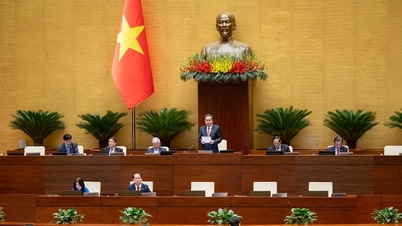

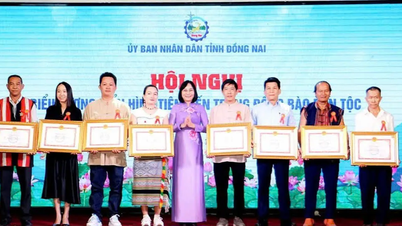



































































![[Live] Closing Ceremony and Award Presentation for the "Impressive Vietnam Tourism" Video/Clip Creation Contest 2025](https://vphoto.vietnam.vn/thumb/402x226/vietnam/resource/IMAGE/2025/12/17/1765974650260_z7273498850699-00d2fd6b0972cb39494cfa2559bf85ac-1765959338756946072104-627-0-1338-1138-crop-1765959347256801551121.jpeg)























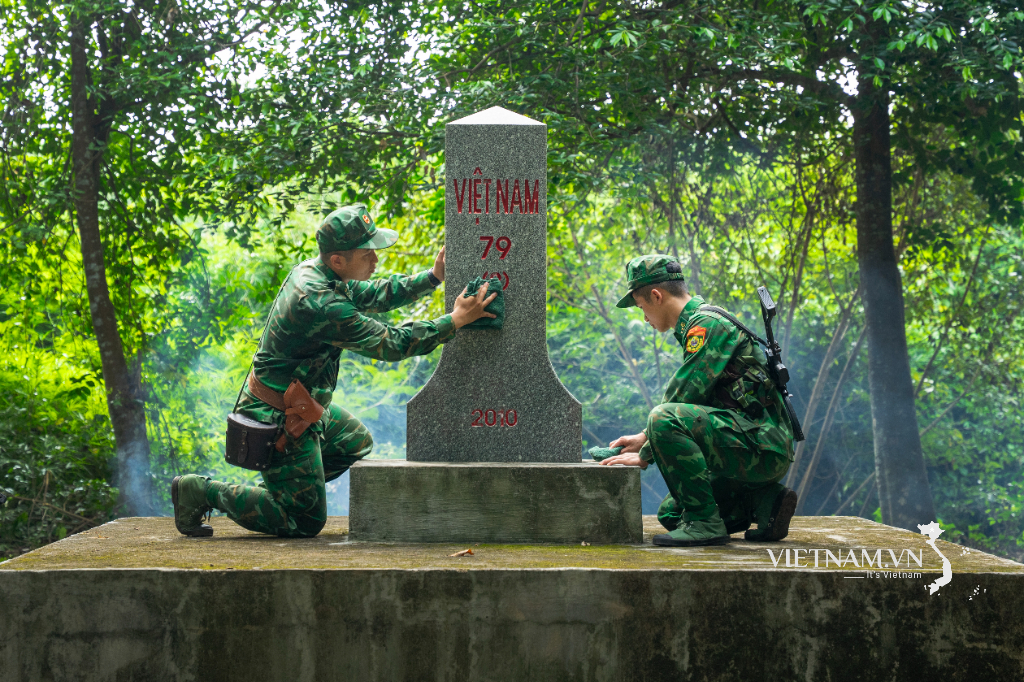


Comment (0)